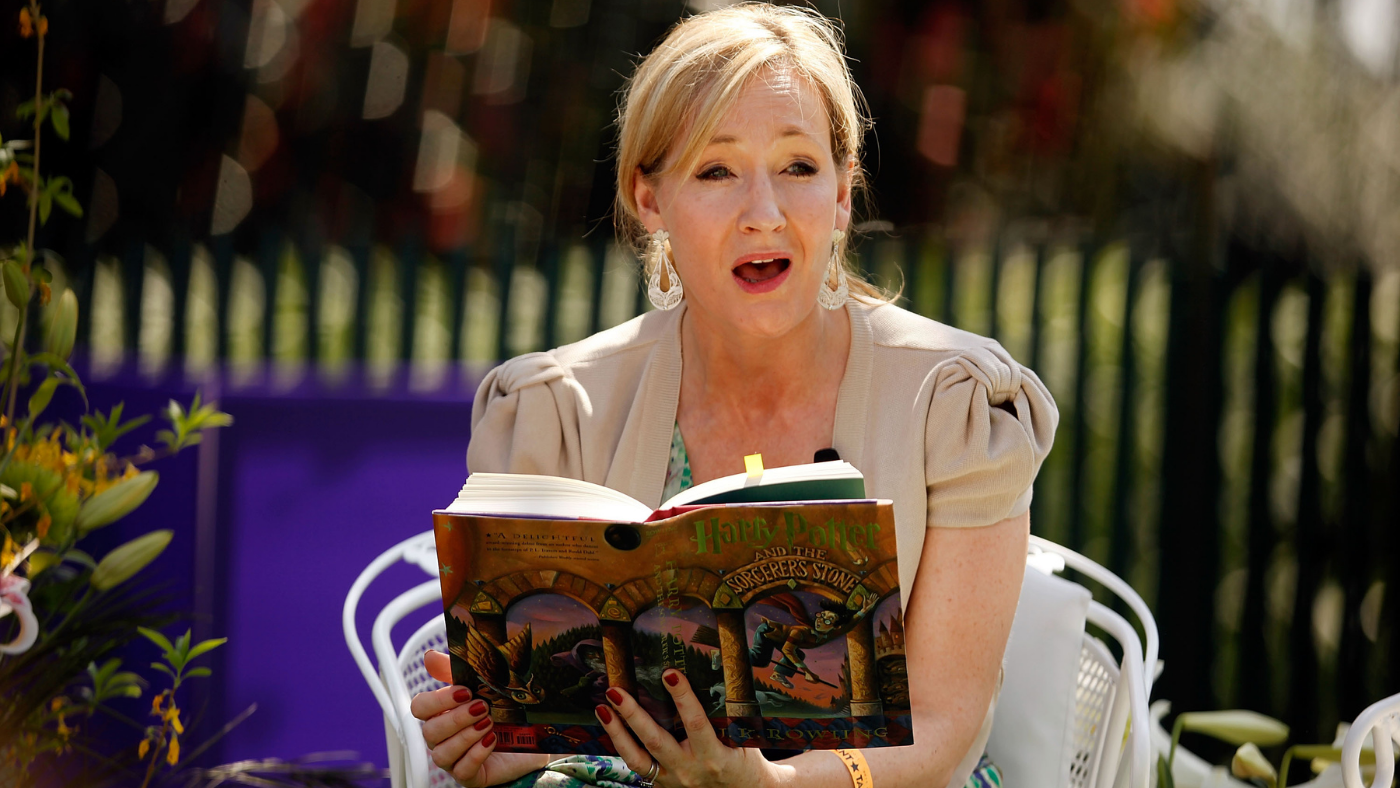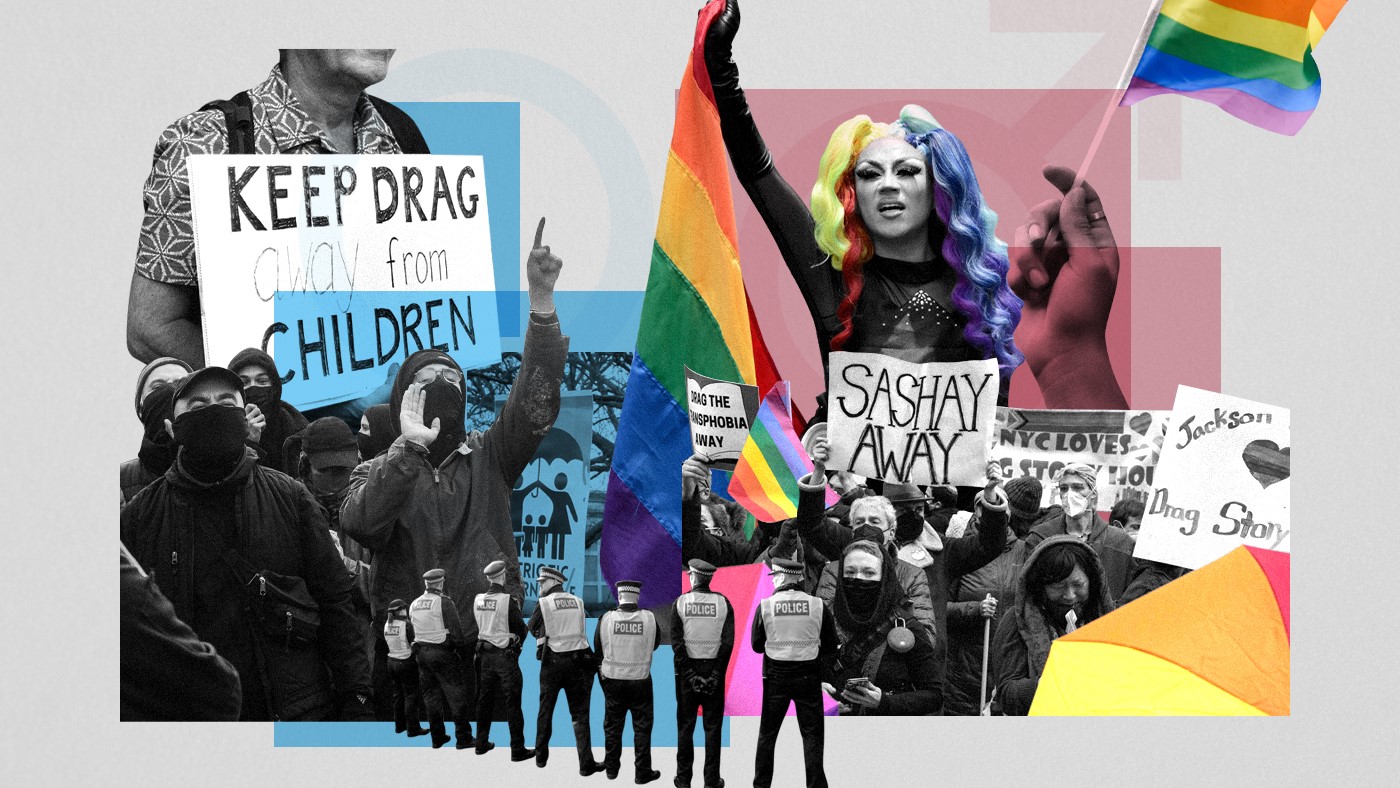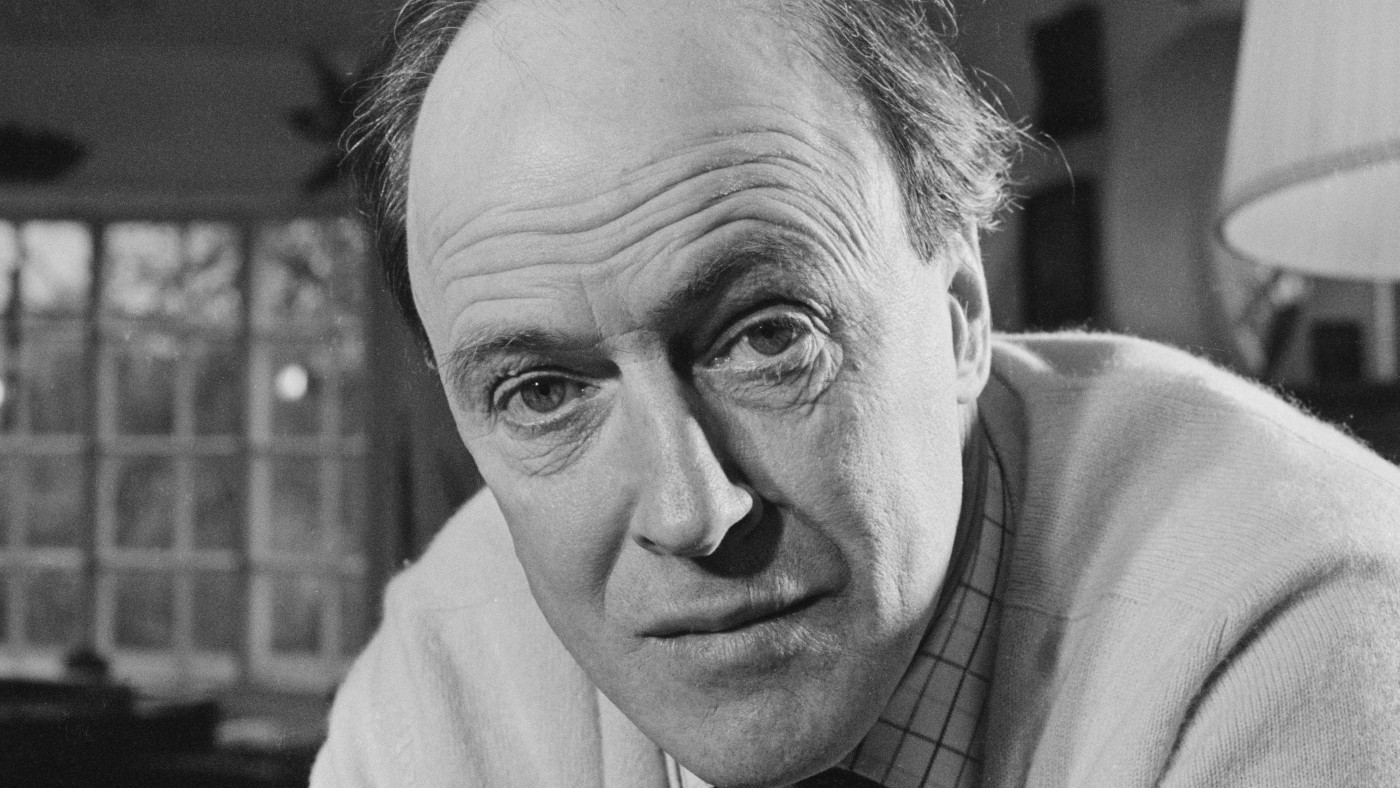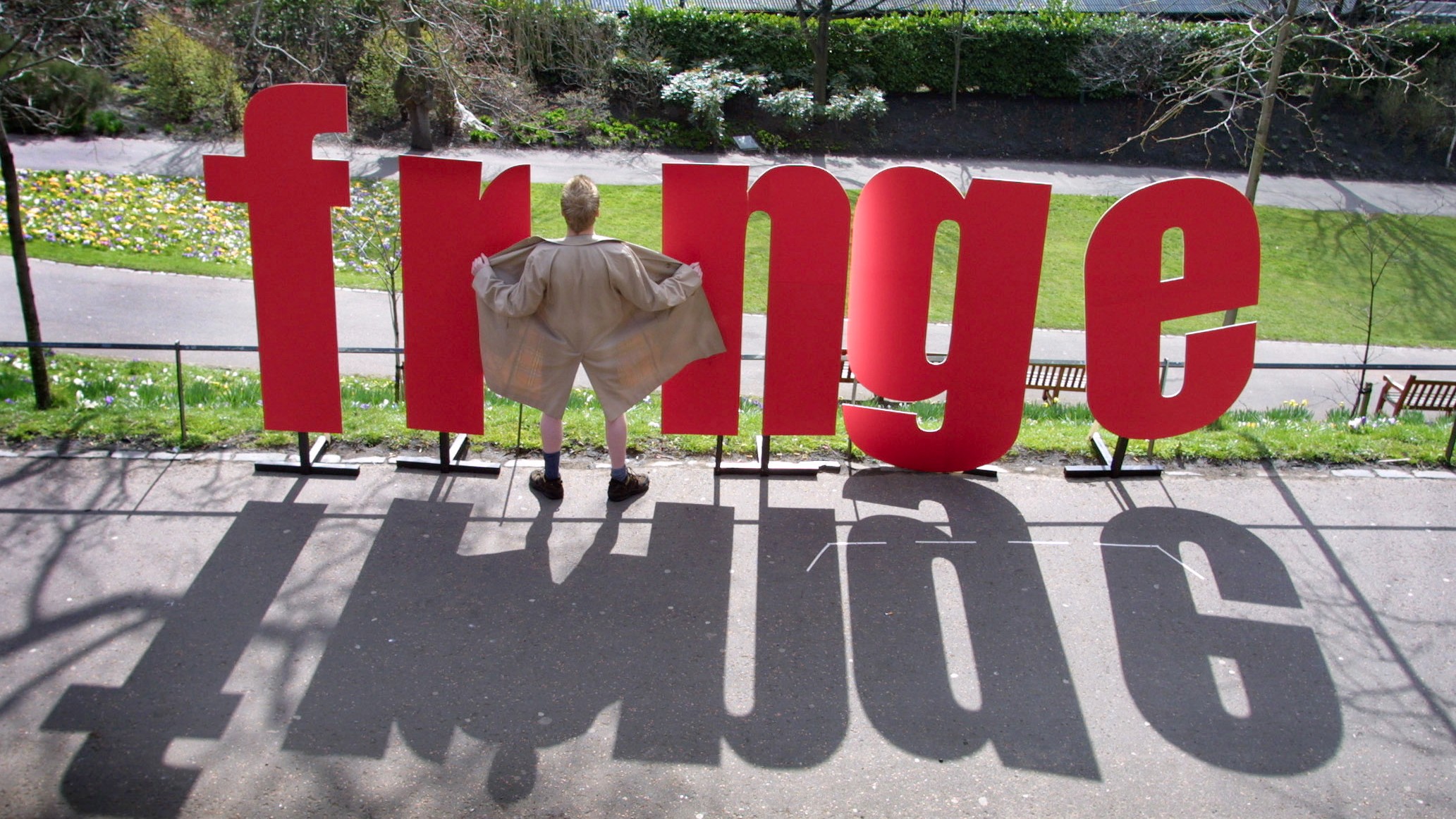What is a ‘trigger warning’ and why are they controversial?
Debate continues over whether content labelling helps or harms students

A free daily email with the biggest news stories of the day – and the best features from TheWeek.com
You are now subscribed
Your newsletter sign-up was successful
J.K. Rowling, Suzanne Collins and Philip Pullman are the latest authors whose novels have been pulled into the culture war of psychological sensitivity vs. wokeness.
The University of Chester has “sounded the klaxon to freshers” who are signed up to the English department’s “Approaches to Literature” module, said the Daily Mail.
Harry Potter and the Philosopher’s Stone, The Hunger Games and Northern Lights are among the term’s set texts that came with a trigger warning stating that they “can lead to some difficult conversations about gender, race, sexuality, class and identity”.
The Week
Escape your echo chamber. Get the facts behind the news, plus analysis from multiple perspectives.

Sign up for The Week's Free Newsletters
From our morning news briefing to a weekly Good News Newsletter, get the best of The Week delivered directly to your inbox.
From our morning news briefing to a weekly Good News Newsletter, get the best of The Week delivered directly to your inbox.
For a number of years, some academics have chosen to signal that their course’s content may “trigger” psychological distress in students. But there is a difference of opinion as to whether such warnings help or harm students.
In response to the University of Chester’s trigger warning, Tory MP Andrew Bridgen told the Mail: “Children understand that stories without difficult themes don’t tend to be very good stories or reflect real life.
“Children and young people are amazingly resilient. It really is very sad that universities are seeking to rob them of that resilience with ridiculous trigger warnings.”
A spokesperson for the university said: “Those studying literature should expect to encounter all the issues, challenges and complexity of humankind. As a university we promote rather than avoid discussion on these.
A free daily email with the biggest news stories of the day – and the best features from TheWeek.com
“We do of course include a generic paragraph on our reading lists to draw attention to the opportunity for individual students to talk with tutors if anything is particularly difficult because of its personal relevance.
“Tutors know how to signpost students to specialist support which is occasionally needed but often the tutorial or seminar discussion is sufficient for a student to put an issue in context.”
What is a trigger warning?
In psychology, a trigger refers to something that can stimulate recollections of a traumatic event. A trigger warning is therefore intended to signal to audiences that content may contain such a stimulus and therefore could have adverse effects for individuals who experience post-traumatic stress disorder.
Trigger warnings began appearing on feminist websites in the early 2000s, to warn readers of “fraught topics like sexual assault, child abuse and suicide”, law professor Jeannie Suk Gersen said in The New Yorker. And their use has “steadily increased online, particularly on social media”.
They have been used “to serve a subtly different purpose within universities”, Kate Manne, and assistant professor of philosophy at Cornell University, argued in The New York Times.
She said that they “allow those who are sensitive to these subjects to prepare themselves for reading about them, and better manage their reactions”. In her view, the benefits of trigger warnings “can be significant”.
Typically, it is up to an individual tutor’s discretion whether to issue a trigger warning or not. Universities tend not to have policies for or against them.
Why are they controversial?
Trigger warnings “have played an outsize role in the debate about what’s been called ‘the new political correctness’ – whether greater sensitivity to students’ concerns about mental health and racial and gender equality has turned into a threat to academic freedom and open debate”, said Vox.
Some argue that labelling a work as triggering can damage its societal value. Warnings “are such a slippery form of censorship”, said Brendan O’Neill at Spiked. “They don’t forbid reading, but discourage it.”
O’Neill argues that it is wrong to label books such as George Orwell’s Nineteen Eighty-Four with a trigger warning, as the University of Northampton has done this week.
“Woke hysteria has now reached such a crescendo that even the 20th century’s most famous warning about tyranny is falling victim to its tyrannous habits.”
He went on: “Even Charlotte bloody Bronte comes with a trigger warning now,” before concluding: “It is philistinism on stilts, and when applied to Nineteen Eighty-Four it is positively harmful, too.”
But Vox said that films have “ratings that come with specific details about why they’re rated that way” and “modern art exhibits sometimes carry labels about provocative content”.
They are not “uncommon” for groups of “paying customers and children”, but the controversy in universities is that “college students aren’t supposed to be seen that way”.
Do trigger warnings work?
Professor Gersen said in The New Yorker that studies into trigger warnings have found they don’t tend “to result in recipients choosing to avoid the material”, adding: “Instead, the warned individuals tend to forge ahead.”
And at this point, she argued, it may be the case that “trigger warnings have developed a spinoff cultural meaning that departs from the aim of providing psychological aid to those who suffer from trauma”, thereby making their original purpose largely defunct.
In an academic context, however, they may “really function as a signal to a subset of students who are looking for it that the teacher is sensitive to their concerns”.
Julia O'Driscoll is the engagement editor. She covers UK and world news, as well as writing lifestyle and travel features. She regularly appears on “The Week Unwrapped” podcast, and hosted The Week's short-form documentary podcast, “The Overview”. Julia was previously the content and social media editor at sustainability consultancy Eco-Age, where she interviewed prominent voices in sustainable fashion and climate movements. She has a master's in liberal arts from Bristol University, and spent a year studying at Charles University in Prague.
-
 The ‘ravenous’ demand for Cornish minerals
The ‘ravenous’ demand for Cornish mineralsUnder the Radar Growing need for critical minerals to power tech has intensified ‘appetite’ for lithium, which could be a ‘huge boon’ for local economy
-
 Why are election experts taking Trump’s midterm threats seriously?
Why are election experts taking Trump’s midterm threats seriously?IN THE SPOTLIGHT As the president muses about polling place deployments and a centralized electoral system aimed at one-party control, lawmakers are taking this administration at its word
-
 ‘Restaurateurs have become millionaires’
‘Restaurateurs have become millionaires’Instant Opinion Opinion, comment and editorials of the day
-
 Are complaints about wokeness in comedy valid or just the usual 'the olds don't get it' issue?
Are complaints about wokeness in comedy valid or just the usual 'the olds don't get it' issue?In the Spotlight Jerry Seinfeld has been in the news for his recent remarks, but political correctness has long been criticized for interfering with jokes
-
 How drag became a battle in the culture wars
How drag became a battle in the culture warsfeature Reading events for children targeted by far-right and anti-woke groups on both sides of the Atlantic
-
 Rewriting Roald Dahl: ‘absurd censorship’ or a sign of the times?
Rewriting Roald Dahl: ‘absurd censorship’ or a sign of the times?Talking Point References to weight, mental health, gender and race have been changed having been deemed offensive to modern readers
-
 The Lost King: the Richard III film rewriting history
The Lost King: the Richard III film rewriting historyUnder the Radar Critics say ‘reckless’ movie exaggerates role of amateur historian in discovery of monarch’s remains
-
 Six of the best gadgets for students
Six of the best gadgets for studentsThe Week Recommends From portable speakers to sunrise alarms
-
 Should Edinburgh Fringe have cancelled Jerry Sadowitz?
Should Edinburgh Fringe have cancelled Jerry Sadowitz?Talking Point Controversial comedian’s show pulled from world’s largest arts festival over ‘not acceptable’ material
-
 Should book trigger warnings and bans at universities be reversed?
Should book trigger warnings and bans at universities be reversed?Talking Point Institutions criticised for ‘cosseting students’ by axing ‘challenging’ texts
-
 Blackstone deal: why student housing is attracting record investment
Blackstone deal: why student housing is attracting record investmentIn Depth Revenue from UK higher education is booming, fuelled in part by increased demand from overseas